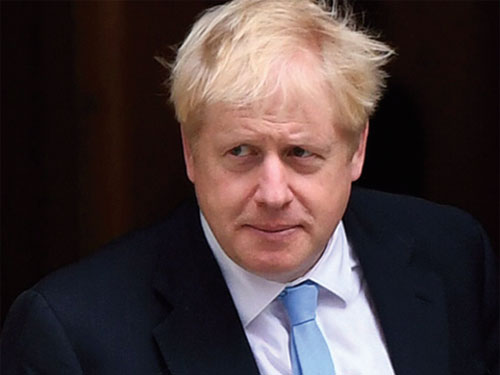A trade deal between the U.K. and European Union is still hanging in the balance after a weekend of intense diplomacy saw Boris Johnson call the leaders of Germany and France.
In an attempt to break the deadlock ahead of a critical week of negotiations, the British prime minister told Angela Merkel and Emmanuel Macron the EU will have to back down from its hard-line position on the politically explosive issue of fisheries if an agreement is to be found.

The top-level intervention marks a significant shift up a gear in deliberations that have been in a near-stalemate since they began in March. Having previously criticized Johnson for his lack of engagement, EU officials said his calls with the bloc’s most important figureheads could help break the impasse ahead of such a crucial week.
Talks resume in Brussels on Monday, and are set to continue at least until Merkel, Macron and the bloc’s 25 other national leaders convene on Thursday for a summit in a separate building close by. If Johnson is persuaded that the EU is ready to do a deal, discussions are likely to continue in the Belgian capital for a further two weeks.
While Johnson’s engagement was welcome, it underscored the differences that remain between the two camps, EU officials cautioned. For progress to be made, the U.K. will also need to give ground, they added.
‘Significant Gaps’
Johnson’s office released cursory statements after the calls to Paris on Saturday and Berlin on Sunday. Johnson reminded both leaders the U.K. wanted a deal but, if one isn’t possible, it is prepared to end the transition period without one. He said that rapid progress was needed to bridge “significant gaps.” He told Merkel that “achieving a deal in the coming days would be beneficial for both sides,” according to an email from his spokesman.
The statements from the Elysee and Chancellery were even terser: Macron’s office limited itself to saying both sides presented their respective positions, Merkel to confirming only that she had spoken with Johnson about Britain’s departure from the EU.
While the French president is taking the toughest stance on fishing—that EU boats should enjoy the same access to British waters they have today—the German chancellor is seen by the rest of the bloc as a deal-maker who could convince other governments to compromise.
Quick Calls
Although the calls lasted only about 30 minutes each, there has been extensive back-channel contact in recent days between London, Paris and Berlin, officials said, indicating that all parties are pushing to get a deal over the line.
The British side, which has sent around 60 officials to Brussels this week, considers the issue of how to divvy up fishing rights as the biggest obstacle to a deal. The U.K. wants quotas to be calculated differently and to be negotiated annually, giving British trawlers a far bigger share of the catch.
EU officials warn, however, that disagreements over what subsidies the U.K. will be allowed to hand out to businesses in future are just as significant and that Britain needs to move on that before the bloc offers any concessions on fisheries.
If the two sides fail to reach a trade agreement by the end of the year, when Britain leaves the EU’s single market and customs union, businesses and consumers will be left grappling with the cost and disruption of tariffs and quotas, while relations between the two sides could be poisoned for a generation.






